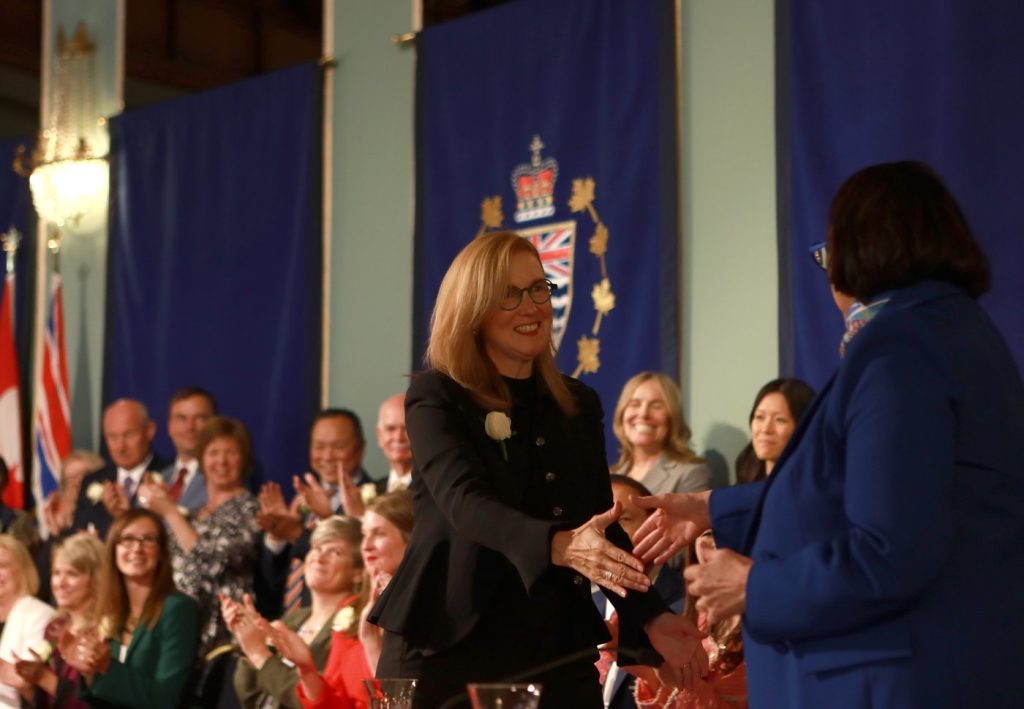When the British Columbia Legislature reconvenes for the first time in nine months, it will do so amidst significant economic uncertainty and political tension heavily influenced by events occurring far away in the United States. The newly appointed Lieutenant Governor, Wendy Cocchia, is set to deliver a throne speech that will outline the goals of the New Democratic Party (NDP) government, contextualized by the looming threat of substantial tariffs from U.S. President Donald Trump.
Recent government decisions already indicate that the NDP's agenda has been impacted, with Finance Minister Brenda Bailey announcing the cancellation of the government’s $1,000 grocery rebate just days before the Legislature opens. Bailey emphasized the unpredictable nature of the current situation, stating that there may also be a need to reconsider the government’s commitment to a middle-income tax cut in future budgets.
According to Bailey, British Columbia faces an "unpredictable" future, exacerbated by Trump's presidency and his unpredictable negotiation style, which has been characterized by threats and bluster. Opposition Leader John Rustad criticized the government for not taking earlier action on these issues, suggesting that proactive measures should have been implemented soon after Trump’s election victory.
While Bailey acknowledged the considerable challenges posed by the potential tariffs and their impact on B.C.'s economy, she also indicated the government would focus on safeguarding existing resources and ensuring that provincial investments continue to serve the public effectively.
As the budget is due to be released on March 4—coinciding with the expiration of Trump's tariff delay—Bailey noted the complexity of preparing for possible tariff impacts on businesses and workers across British Columbia. Premier David Eby, after discussions in Washington, D.C. with other Canadian premiers and White House officials, expressed a desire for collaborative solutions between Canada and the U.S. but highlighted the anxiety wrought by Trump's consistent tariff threats.
House Leader Mike Farnworth remarked that the tariff issues would be the government's primary focus as it navigates a precarious political landscape, with the NDP holding a slim one-seat majority in the Legislature, comprising 47 seats against the Conservative Party of B.C.’s 44 and the B.C. Green Party’s two. Rustad expected an assertive legislative session, noting that many new Members of the Legislative Assembly (MLAs) would be eager to hold the government accountable on crucial matters such as fentanyl, border issues, and the implications of Trump’s policies.
Mike De Jong, a veteran MLA representing multiple party affiliations from 1994 to 2024, commented on the heightened sense of uncertainty impacting the province's economy, comparing it to other historical crises while noting the unique challenges presented in the current context, including a record provincial deficit. He expressed concern that the capacity for government intervention and support during times of uncertainty is greatly diminished, attributing this to the past decisions made by Canadian governments.
The coming legislative session promises to be tumultuous as decision-makers face uphill battles in addressing pressing local and global concerns in a climate of economic uncertainty and shifting political dynamics shaped by actions taken thousands of kilometers away in the U.S.










